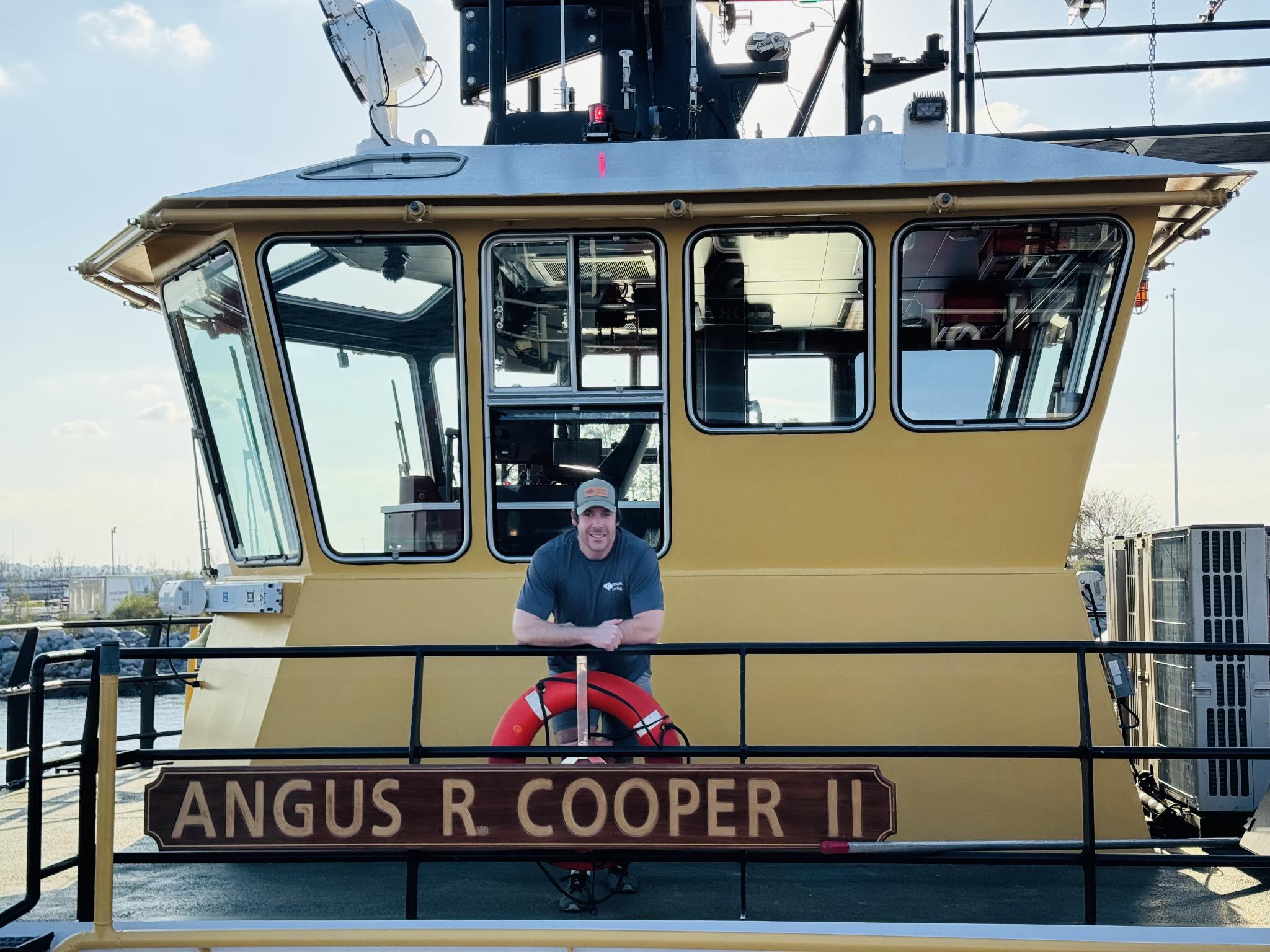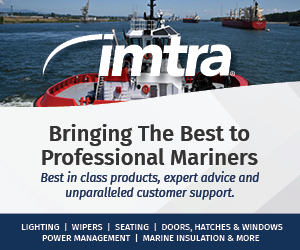Brent Edenfield, captain aboard the Crescent Towing tractor tug Angus R. Cooper II, has been on or near the water in Savannah, Ga., his entire life.
“I grew up around here,” he said. “I really enjoyed hunting, fishing, golf, really anything outdoors. I like to stay active. Fishing was a big part. Coastal Georgia is beautiful. It’s warm most of the time, so you never run out of things to do here. It’s really a little hidden paradise.”
After high school and after working at Release Marine, a sport fishing equipment manufacturer in Savannah, Edenfield interviewed and hired on with Crescent Towing in May 2006.
“I lucked out, to be honest with you,” he said. “I landed a full-time deck spot.”
Crescent Towing first sent Edenfield to the seafarers’ school in Piney Point, Md. From the start, he knew where he wanted to go.
“I always wanted to go to the wheelhouse,” he said. “I mean, even today, I still enjoy the job. When I was young and first learning, it was a lot of fun, and I knew I wanted to progress rapidly.”
Edenfield said there was a time when he had his pilot’s license but still worked deck, simply because there were no available mate positions.
“I worked relief mate for many years while I was on deck,” he said. “Then, obviously, you have guys retire or move on, and a full-time mate position opened up.”
Edenfield said it would be hard to overstate the impact the captains he trained under have had on his career as a captain. Those mentor captains included Joe Maggioni, Steve Roberts and David Reddick.
“Those are the three I spent the majority of my mate career with,” Edenfield said. “Joe’s retired, and Steve and David are now docking pilots for us.”
With Maggioni, Edenfield got to work aboard a conventional drive tug, while Roberts and Reddick are “probably two of the best ASD tractor tug boat handlers in this port,” he said.
“I’m really lucky to be with those two, and I was really lucky to be with Joe,’” Edenfield said. “Thinking back on it, looking at the way my career progressed was pretty lucky. I got some great experience with some really, really, really good guys.”
Edenfield emphasized the value of having the opportunity to learn on both conventional tugboats and ASD (azimuthing stern drive) tractor tugs. ASD tugs are much more maneuverable, he said, “as long as your fundamentals are correct,” while conventional tugs require the crew to be more methodical.
“On a conventional boat, you build up your fundamentals so much better, and that sticks with you forever,” he said. “You carry that on to the next evolution of tractor tugs, so that was an invaluable experience.”
Even continuing to deck while he waited for a full-time mate position was valuable.
“In my mind, it was almost like more training,” he said. “I wasn’t thrown directly into the fire. I was still learning. I think it was better for my development, because I didn’t go straight from the deck to the wheelhouse. I was still able to see different situations through a longer period of time, then learn and grow. I think I was much better prepared whenever I did go into the wheelhouse full time.”
Edenfield explained that not everyone who’s hired at Crescent Towing goes directly into a full-time deckhand position. For those on the relief list, Edenfield said that time can be a great learning opportunity.
“These young guys get to work in the shop, come down and do maintenance on the boat with the port engineer, and that’s instilling a work ethic in them,” he said. “They work 9 to 5, Monday through Friday, and then if a deckhand marks off or somebody needs to get off for whatever reason, these guys come down and fill a spot. They’re getting great work experience there, too.”
Edenfield said he definitely has seen some changes since he started with Crescent Towing in the Savannah area. Dock construction, ship size and channel draft have all increased, as has the fleet of tugboats working in the area.
“If you brought one of the guys that had been out here a while ago and rode down the river, they wouldn’t recognize it,” he said. “It is crazy how much just the aesthetics of the river’s changed. New construction on the city front, new docks there. They’re reworking docks to go from break bulk to containers. The company’s handled it great. They’ve got us some good equipment. Young guys have stepped up, and we’ve adapted to it.”
Work-life balance can be a challenge, Edenfield said, with the 7 days on, 7 days off schedule. That’s one reason why he tells people considering a career in the maritime industry, “This is a lifestyle, and it’s not for everybody.”
For Edenfield, though, a big part of what makes his time on duty safe, smooth and successful—and what helps bridge the time away from home from his wife and family—are the relationships with his crew mates.
“A lot of guys out here will hang out outside of work, play golf, fish, hunt,” he said. “We all have a lot in common, and it translates to a better work environment. When you can come out here and work with a bunch of friends, it makes the week go by faster and makes work more enjoyable. I’m not going to say you look forward to coming to work and leaving your family at home, but if you have a lot in common with the guys, and if you see them on your week off, it definitely makes everything out here better for sure.”



